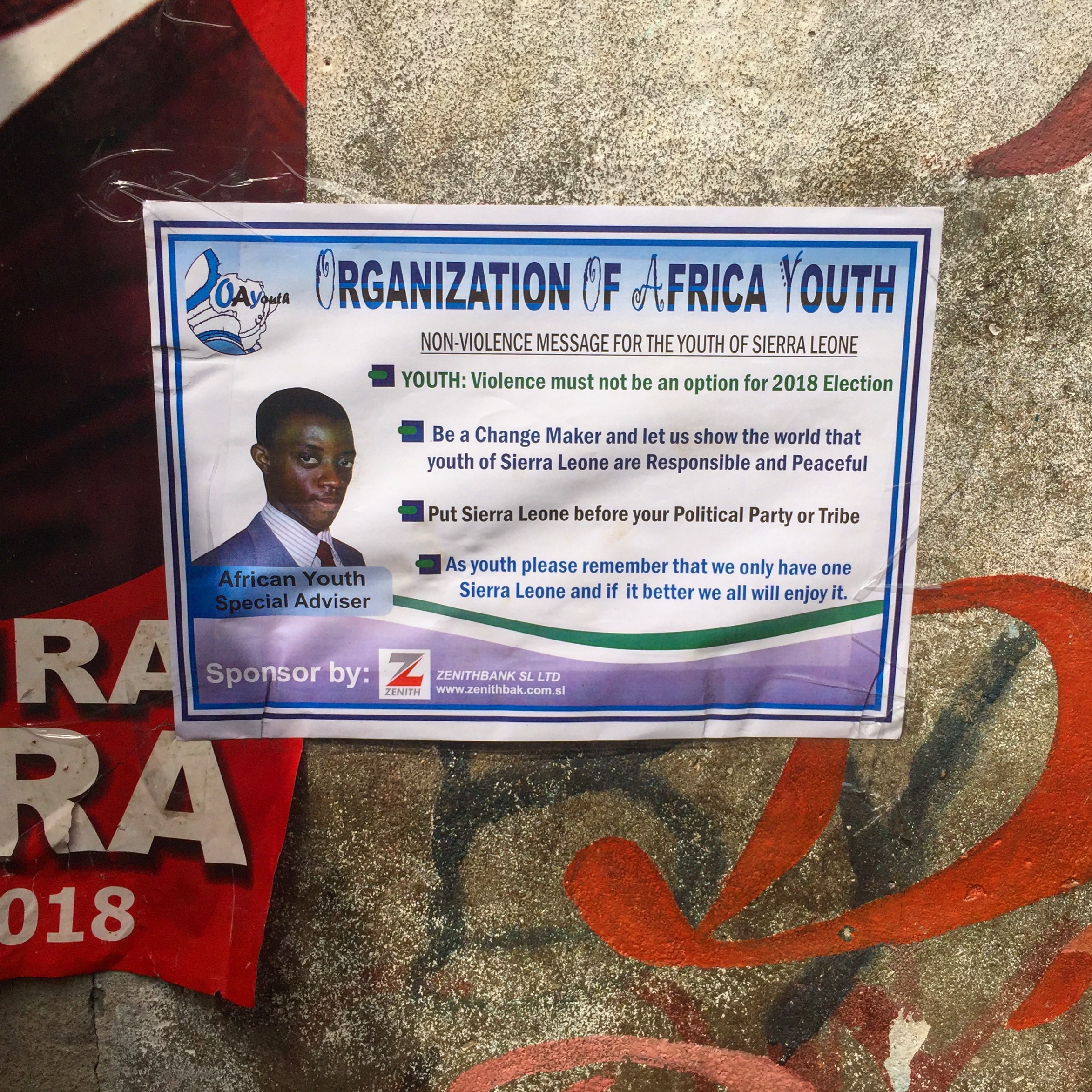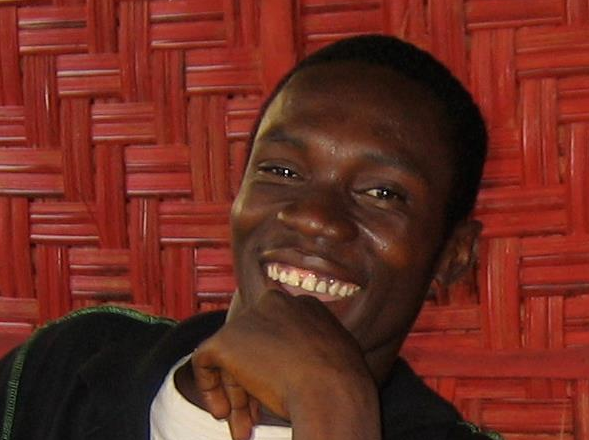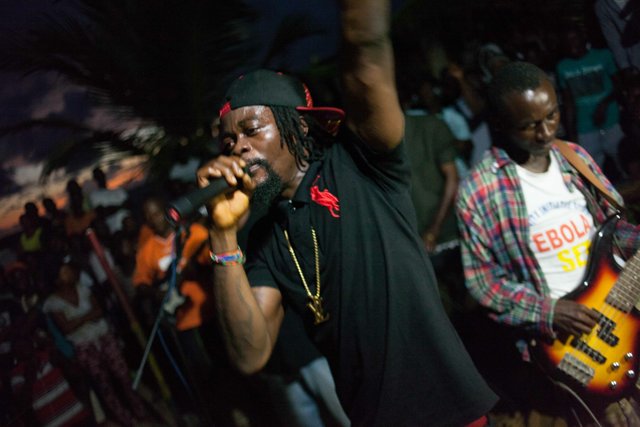Youth at Risk – Youth as Risk
On the evening of the 15th February, six leading presidential candidates for the Sierra Leone presidential elections took to the stage. Over three hours of a live broadcasted debate, each answered questions about their plans for the country. Seen by some as a milestone in Sierra Leone’s post-war political development, the following morning the capital Freetown was abuzz with talk about who had acquitted themselves, who had failed to impress, and what – if anything – this might mean for the election result on the 7th March. In the offices of a youth development organisation, staff enthusiastically discussed the event.
In an adjoining room, I met with their colleague Mohamed*, a man with decades of experience working in the city’s poorest informal communities. What did you think of the debate? I asked. Was it a sign that Sierra Leone’s political scene is moving towards serious discussion of policies, or as one report put it, ‘growing up’?

A poster in Susan’s Bay calls on Sierra Leone’s youth to be peaceful during elections. Photo by the author
Mohamed smiled. Pointing to his colleagues next door, he replied: ‘Each person there is arguing about why their preferred candidate won the debate. What the candidate actually said, how they performed – it doesn’t matter.’ He went on to make a familiar point; voters put party, tribe and personal loyalties ahead of policies. Whilst certainly not new or unique to Sierra Leone, this he contended, meant such debates had little bearing on the electoral outcome. The promise of some candidates to provide free education, surely a positive development for the country’s youth, was just rhetoric, he concluded. In fact, ‘politicians keep the youth uninformed and uneducated so they can use them to their own advantage.’ Continue reading


 It’s raining in Freetown and the traffic is, as usual, slow on the road through Congo Town towards Kroo Town Road. The radio announcer is going through the obituaries in a solemn, deliberate monotone, the names different, the pattern the same: Mr John Koroma of Kissy Town passed away on said date leaving said relatives in said location… repeat… repeat… repeat. Variations on the theme. After a few minutes of death reports the obituaries are rounded off with a few snatches of Abide With Me, by which time we have actually reached Kroo Town Road. We swing right on the now tarmacked road that runs parallel to Adelaide Street and pass what, ten years ago, was the Pentagon car wash, a hangout for ex-combatants and others struggling to make a living in a world of ‘no war no peace’ under conditions that one of them described as ‘exorbitant poverty’.
It’s raining in Freetown and the traffic is, as usual, slow on the road through Congo Town towards Kroo Town Road. The radio announcer is going through the obituaries in a solemn, deliberate monotone, the names different, the pattern the same: Mr John Koroma of Kissy Town passed away on said date leaving said relatives in said location… repeat… repeat… repeat. Variations on the theme. After a few minutes of death reports the obituaries are rounded off with a few snatches of Abide With Me, by which time we have actually reached Kroo Town Road. We swing right on the now tarmacked road that runs parallel to Adelaide Street and pass what, ten years ago, was the Pentagon car wash, a hangout for ex-combatants and others struggling to make a living in a world of ‘no war no peace’ under conditions that one of them described as ‘exorbitant poverty’.